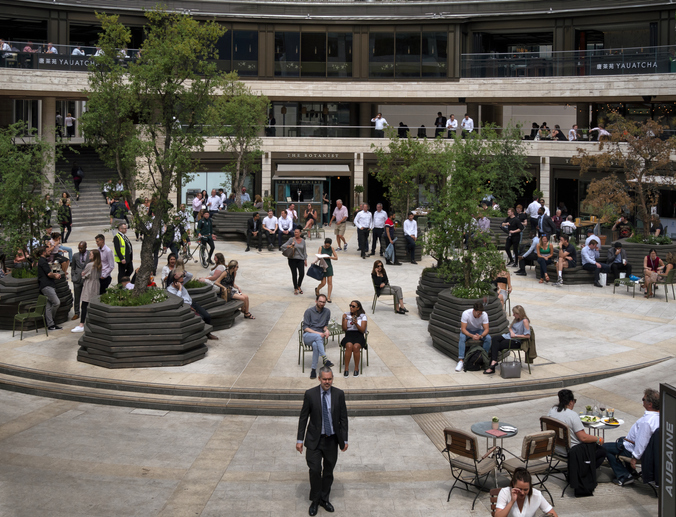British Land: signs of promise, but what should you do?
17th November 2021 08:11
by Richard Hunter from interactive investor
There's been a redefinition of British Land’s strategy and there are some encouraging signs that the group is beginning to move ahead of the curve.

As the property landscape evolves and with specific challenges in London, British Land (LSE:BLND) is redesigning its portfolio to reflect the new environment.
Larger questions remain unanswered for the moment, however.
The first relates to the inexorable rise of online shopping, boosted further during the pandemic, and the scarring this may leave on physical shopping centres and, indeed, the high street in general in future years.
In addition, the longer term impact of hybrid working is yet to wash through, with staff at some companies not returning to the office at all and others on a limited basis.
These shadows have forced a redefinition of British Land’s strategy and there are some encouraging signs that the group is beginning to move ahead of the curve.
- REITs: a smarter way to invest in property?
- Stockwatch: how much upside for this restructuring retailer?
- Jeff Prestridge: 25 good reasons to buy the UK stock market
Its focus is now split between three major strands. Its campus proposition, which resonates in the modern era, providing high quality space aligned with a sense of community and a focus on the support of general wellbeing. Its focus on retail parks provides both the ability to benefit from the out of town shopping experience, while also providing a natural home for the increasing amount of “Click and Collect” services.
Meanwhile, its urban logistics model provides for physical delivery of goods especially in restricted areas, with three hubs in London, for example, providing the ability to fulfil deliveries in the “final mile”.
The results are clearly having a positive impact. Profits after tax for the period were £370 million, as compared to a loss of £730 million in the corresponding period, with underlying profit up by 12%. Retail footfall and sales have recovered to 89% and 98% of pre-pandemic levels and for retail parks, to 97% and 98%. Rent collection had been an issue at the height of the pandemic, but the current figure of 96% of rents collected is an encouraging sign. The value of the overall portfolio has also increased by 2.9% over the period, having previously slipped during the pandemic, driven by increases in campuses of 3%, retail and fulfilment of 2.7% and retail parks of 7.1%.
At the same time, the property portfolio is also undergoing change. Some £500 million of acquisitions and nearly £200 million of sales of mature assets reflect the new strategy and, with access to cash and undrawn facilities of £1.5 billion, the balance sheet is strong enough to withstand further investments.
In the meantime, the previous return to a dividend payment is also a sign of management confidence, with a prospective yield of over 3% providing a decent and separate return to investors.
- Bill Ackman: an industry as certain as food and oxygen
- Subscribe to the ii YouTube channel for interviews with popular investors
- Read more of our content on UK shares here
The share price has increased by 70% since pandemic lows, although over the last year the growth has been more pedestrian, with a rise of 5.8% comparing to a hike of 15% for the wider FTSE100.
There is little question that British Land is making strong progress towards its stated goals, but the landscape is rapidly evolving which brings its own inevitable challenges. As such, the jury remains out on the company’s immediate prospects, with the market consensus of a "hold" suggesting something of a wait and see attitude from investors.
These articles are provided for information purposes only. Occasionally, an opinion about whether to buy or sell a specific investment may be provided by third parties. The content is not intended to be a personal recommendation to buy or sell any financial instrument or product, or to adopt any investment strategy as it is not provided based on an assessment of your investing knowledge and experience, your financial situation or your investment objectives. The value of your investments, and the income derived from them, may go down as well as up. You may not get back all the money that you invest. The investments referred to in this article may not be suitable for all investors, and if in doubt, an investor should seek advice from a qualified investment adviser.
Full performance can be found on the company or index summary page on the interactive investor website. Simply click on the company's or index name highlighted in the article.